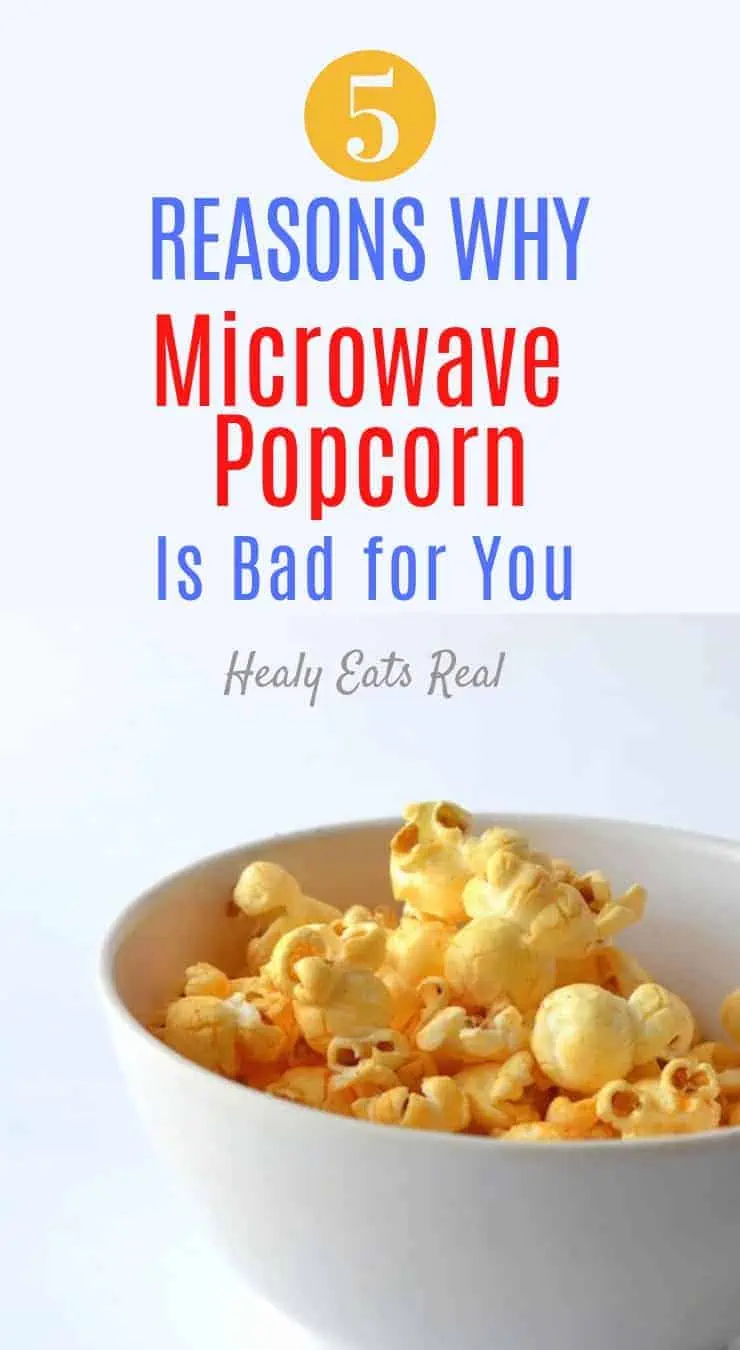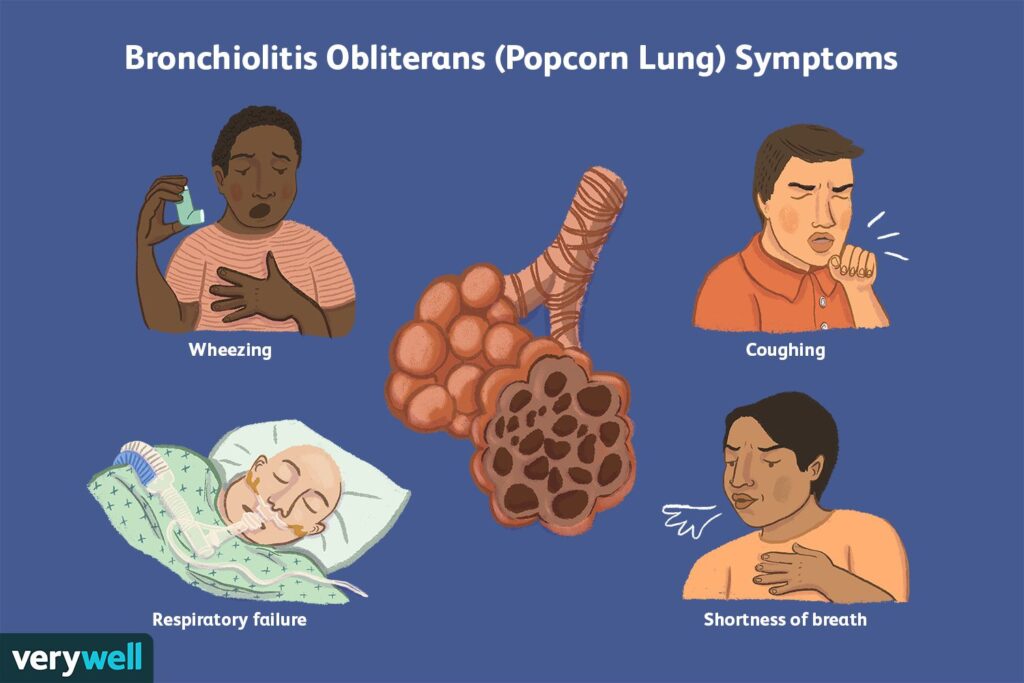Microwave popcorn is a popular snack. But is it bad for your health?
Table of Contents
ToggleMany people love the convenience and taste of microwave popcorn. It’s quick and easy to make. Yet, there are concerns about its safety. Some worry about chemicals in the packaging. Others question the healthiness of the ingredients. This blog will explore these concerns.
We’ll look at what makes microwave popcorn tasty but potentially risky. By the end, you will know if microwave popcorn is a safe choice for you. Stay tuned to find out more!

Credit: pfasproject.com
Microwave Popcorn Ingredients
Microwave popcorn is a popular snack choice. It is quick and easy to make. But what exactly is in those bags of buttery goodness? Let’s take a closer look at the common ingredients found in microwave popcorn.
Common Additives
Microwave popcorn often contains additives to enhance flavor and preserve freshness. These additives can include:
- Salt: Adds taste and acts as a preservative.
- Oil: Helps popcorn pop and adds flavor.
- Preservatives: Such as TBHQ (tertiary butylhydroquinone) to extend shelf life.
- Emulsifiers: Like lecithin to keep ingredients mixed.
Artificial Flavorings
Artificial flavorings are also common in microwave popcorn. These can include:
- Butter flavor: Often made from synthetic chemicals to mimic real butter.
- Diacetyl: A compound used to create a buttery taste but has health concerns.
- Other flavorings: Like cheese or caramel, which are also synthetic.
Here is a table summarizing some typical ingredients:
| Ingredient | Purpose |
|---|---|
| Salt | Flavor and preservation |
| Oil | Popping aid and flavor |
| TBHQ | Preservation |
| Lecithin | Emulsification |
| Butter flavor | Butter taste |
| Diacetyl | Buttery aroma |

Credit: healyeatsreal.com
Health Concerns
Microwave popcorn is a popular snack, but it raises health concerns. Some ingredients in microwave popcorn can be harmful. Let’s explore some of these concerns below.
Trans Fats
Many brands of microwave popcorn contain trans fats. These are unhealthy fats. They can raise bad cholesterol levels. They can also lower good cholesterol levels. This increases the risk of heart disease.
Avoid products with partially hydrogenated oils. Check the ingredients list. Look for healthier options without trans fats.
High Sodium Content
Microwave popcorn often has high sodium content. Too much sodium can lead to high blood pressure. It can also cause other health problems.
| Brand | Sodium per Serving |
|---|---|
| Brand A | 300 mg |
| Brand B | 250 mg |
| Brand C | 200 mg |
Choose brands with lower sodium. Read the nutrition labels. Opt for plain or lightly salted versions.
Chemical Exposure
Microwave popcorn may pose health risks due to chemicals like diacetyl and PFOA in the packaging. These substances can cause respiratory issues and other health problems with long-term exposure.
Microwave popcorn is convenient. But it may expose you to harmful chemicals. These chemicals are often found in the packaging and flavoring agents. Understanding these risks can help you make safer choices.Perfluorinated Compounds
Perfluorinated compounds (PFCs) are used in microwave popcorn bags. They prevent oil from soaking through. Yet, PFCs can break down into harmful substances. These substances may increase cancer risks and affect the immune system.Diacetyl Risks
Diacetyl is a chemical that gives popcorn its buttery flavor. Long-term inhalation of diacetyl can harm your lungs. This can lead to a condition known as “popcorn lung.” Workers in popcorn factories often face this risk. Enjoying microwave popcorn occasionally may not cause harm, but regular consumption could be risky. “`Nutritional Value
Microwave popcorn is a popular snack. But what is its nutritional value? This section explores the calories, fat content, and how it compares to air-popped popcorn. Understanding these aspects helps you make better snack choices.
Calories And Fat Content
Microwave popcorn varies in calories and fat content. A typical serving size is about 3 cups. Below is a table comparing different brands.
| Brand | Calories (per 3 cups) | Total Fat (g) | Saturated Fat (g) |
|---|---|---|---|
| Brand A | 120 | 8 | 2 |
| Brand B | 150 | 10 | 3 |
| Brand C | 100 | 6 | 1.5 |
The calorie count ranges from 100 to 150 per serving. The fat content varies between 6 and 10 grams. Saturated fats are also present, ranging from 1.5 to 3 grams.
Comparison To Air-popped Popcorn
Air-popped popcorn is often seen as a healthier option. It is made without oil, which affects its nutritional value.
Here is a comparison between microwave and air-popped popcorn:
| Nutrient | Microwave Popcorn (per 3 cups) | Air-Popped Popcorn (per 3 cups) |
|---|---|---|
| Calories | 100-150 | 90-100 |
| Total Fat (g) | 6-10 | 1 |
| Saturated Fat (g) | 1.5-3 | 0 |
Air-popped popcorn has fewer calories and significantly less fat. It contains almost no saturated fats.
For a healthier snack, choose air-popped popcorn. It is lower in calories and fats.
Packaging Safety
Microwave popcorn is a popular snack enjoyed by many. But, is it safe? One major concern is the safety of the packaging. Let’s dive into the details of microwave bag coatings and potential toxins.
Microwave Bag Coatings
Many microwave popcorn bags have special coatings. These coatings prevent the bag from catching fire in the microwave. They also help to evenly distribute the heat. However, some of these coatings have raised health concerns.
One common coating is perfluorooctanoic acid (PFOA). PFOA is used to make the bag grease-resistant. But, PFOA can be harmful. Studies suggest a link between PFOA and cancer. Though no direct link to popcorn bags, the concern remains.
Potential Toxins
Another issue is the release of potential toxins. When heated, some bag coatings break down. This can release toxic chemicals into the popcorn. One such chemical is diacetyl. Diacetyl gives popcorn its buttery flavor. But, it can cause lung damage when inhaled in large amounts.
The FDA has banned some harmful chemicals in popcorn bags. Yet, new chemicals are still a concern. Always check for packaging safety labels. This helps to reduce exposure to harmful substances.
Here is a summary of potential toxins in microwave popcorn bags:
| Chemical | Use | Health Concern |
|---|---|---|
| PFOA | Grease Resistance | Possible Cancer Risk |
| Diacetyl | Flavoring | Lung Damage |
Always be aware of what’s in your microwave popcorn. Safety first!
Healthier Alternatives
Many people wonder if microwave popcorn is bad for you. While it’s a quick snack, there are healthier alternatives. Below, we explore two easy and tasty ways to make popcorn at home.
Air-popped Popcorn
Air-popped popcorn is a great alternative. It uses hot air to pop the kernels. This method needs no oil, making it lower in calories and fat.
- Low in Calories: One cup of air-popped popcorn has only 31 calories.
- High in Fiber: Helps keep you full longer.
- No Added Chemicals: Unlike many microwave popcorn brands.
To make air-popped popcorn, you need an air popper. These machines are affordable and easy to use. Simply add the kernels and let the machine do the work.
Stovetop Methods
Another healthy way to make popcorn is on the stovetop. This method gives you control over the ingredients.
- Heat the Oil: Use a large pot and add a tablespoon of oil. Coconut or olive oil are good choices.
- Add Kernels: Put in a half cup of popcorn kernels.
- Cover and Shake: Cover the pot with a lid. Shake it occasionally to prevent burning.
- Enjoy: Once popping slows, remove from heat and enjoy.
Stovetop popcorn can be healthier than microwave options. You can add your own seasonings. Try using spices like cinnamon or chili powder for extra flavor without added salt.
Below is a quick comparison of the two methods:
| Method | Calories | Fat | Ease of Use |
|---|---|---|---|
| Air-Popped | 31 per cup | 0 grams | Very Easy |
| Stovetop | 55 per cup (with 1 tbsp oil) | 3 grams | Easy |
Both methods offer a healthier way to enjoy popcorn. Each has its own benefits and ease of preparation.
Consumer Awareness
Understanding the health impacts of microwave popcorn involves more than just taste. Consumers need awareness about ingredients and potential risks. This awareness can guide better choices. It’s vital to read labels and consider organic options.
Reading Labels
Reading labels is crucial for avoiding harmful ingredients. Look for artificial additives, preservatives, and trans fats. These can negatively affect health. Labels provide information on serving size and calories. This helps in managing portions and maintaining a balanced diet. Always check for chemicals like diacetyl, linked to lung issues. Simple, natural ingredients are safer for regular consumption.
Choosing Organic Options
Choosing organic options can reduce exposure to pesticides and GMOs. Organic popcorn uses natural farming methods. This means fewer chemicals in your snack. Organic products are often non-GMO. They also exclude artificial flavors and colors. Supporting organic brands promotes healthier options. It also supports sustainable farming practices. Making an informed choice can lead to better health and a safer environment.
Expert Opinions
Many people wonder if microwave popcorn is bad for their health. Experts have differing views. Some see potential risks, while others believe it is safe when eaten in moderation. Let’s explore what dietitians and health studies say.
Dietitian Insights
Dietitians often emphasize the importance of reading labels. Some microwave popcorn brands contain high levels of sodium and unhealthy fats. These can contribute to various health issues. Opting for brands with simple ingredients is a better choice.
Artificial additives in some microwave popcorn can cause concern. Flavorings like butter and cheese may contain chemical compounds. These can be harmful over time. Dietitians suggest choosing plain or lightly salted versions to reduce risks.
Here are some tips from dietitians:
- Look for non-GMO labels.
- Choose organic options when possible.
- Avoid products with trans fats.
Health Studies
Health studies provide valuable insights into the safety of microwave popcorn. Some studies link diacetyl, a chemical used in artificial butter flavoring, to lung disease. This condition, known as “popcorn lung,” affects factory workers more than consumers. Yet, it’s still a concern.
Studies also highlight the presence of perfluorooctanoic acid (PFOA). This chemical is found in the lining of microwave popcorn bags. PFOA has been associated with cancer and thyroid issues. Recent regulations have reduced its use, but it’s wise to stay informed.
Key findings from health studies:
| Study | Finding |
|---|---|
| 2007 Study | Linked diacetyl to lung disease |
| 2013 Study | PFOA associated with cancer risk |
In summary, reading labels and choosing healthier options can mitigate risks. Enjoy microwave popcorn in moderation for a balanced diet.

Credit: www.oprah.com
Frequently Asked Questions
What Is Unhealthy About Microwave Popcorn?
Microwave popcorn can contain harmful chemicals, such as diacetyl and PFOA. These chemicals may cause health issues.
Is There Any Healthy Microwave Popcorn?
Yes, there are healthy microwave popcorn options. Choose brands with minimal ingredients, no artificial additives, and lower sodium. Look for non-GMO and organic labels.
Is Microwave Popcorn Worse Than Chips?
Microwave popcorn can be less healthy than chips due to added chemicals and higher sodium. Always check labels for healthier options.
Is Microwave Popcorn Worse Than Air-popped?
Yes, microwave popcorn often contains more unhealthy fats and additives. Air-popped popcorn is healthier with fewer calories. Choose air-popped for a nutritious snack.
Conclusion
Microwave popcorn can be a tasty, convenient snack. But moderation is key. Some brands contain unhealthy chemicals and additives. Always check the labels. Choose popcorn with fewer ingredients. Go for air-popped or stovetop options when possible. These alternatives can be healthier.
Balance your diet with various snacks. Enjoy popcorn, but be mindful of what’s in it. Taking small steps can lead to better health. Stay informed and make wise choices. Your body will thank you.
{ “@context”: “https://schema.org”, “@type”: “FAQPage”, “mainEntity”: [ { “@type”: “Question”, “name”: “What is unhealthy about microwave popcorn?”, “acceptedAnswer”: { “@type”: “Answer”, “text”: “Microwave popcorn can contain harmful chemicals, such as diacetyl and PFOA. These chemicals may cause health issues.” } } , { “@type”: “Question”, “name”: “Is there any healthy microwave popcorn?”, “acceptedAnswer”: { “@type”: “Answer”, “text”: “Yes, there are healthy microwave popcorn options. Choose brands with minimal ingredients, no artificial additives, and lower sodium. Look for non-GMO and organic labels.” } } , { “@type”: “Question”, “name”: “Is microwave popcorn worse than chips?”, “acceptedAnswer”: { “@type”: “Answer”, “text”: “Microwave popcorn can be less healthy than chips due to added chemicals and higher sodium. Always check labels for healthier options.” } } , { “@type”: “Question”, “name”: “Is microwave popcorn worse than air-popped?”, “acceptedAnswer”: { “@type”: “Answer”, “text”: “Yes, microwave popcorn often contains more unhealthy fats and additives. Air-popped popcorn is healthier with fewer calories. Choose air-popped for a nutritious snack.” } } ] }

